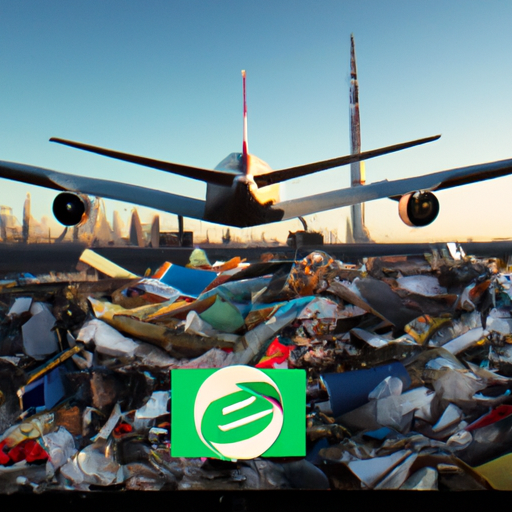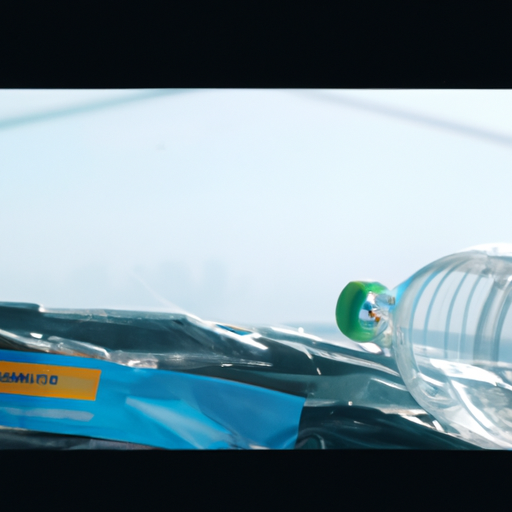
Benefits of Emirates’ Closed Loop Recycling Program
Emirates, one of the world’s leading airlines, has recently introduced a groundbreaking closed loop recycling program. This innovative initiative aims to reduce waste and promote sustainability within the airline industry. By implementing this program, Emirates is not only taking a step towards a greener future but also reaping numerous benefits.
One of the key benefits of Emirates’ closed loop recycling program is the reduction of waste. With millions of passengers flying with Emirates each year, the amount of waste generated can be staggering. However, by implementing this program, Emirates is able to recycle a significant portion of this waste, diverting it from landfills and reducing their environmental impact. This not only helps to preserve the planet for future generations but also sets a positive example for other airlines to follow.
In addition to waste reduction, Emirates’ closed loop recycling program also helps to conserve valuable resources. By recycling materials such as paper, plastic, and aluminum, Emirates is able to reduce the need for raw materials and energy-intensive manufacturing processes. This not only saves natural resources but also reduces greenhouse gas emissions associated with the production of new materials. By adopting this program, Emirates is making a significant contribution to the global effort to combat climate change.
Furthermore, Emirates’ closed loop recycling program has economic benefits as well. By recycling materials, Emirates is able to reduce their waste disposal costs. Instead of paying for waste to be transported and disposed of in landfills, Emirates can now sell recyclable materials to recycling companies, generating revenue in the process. This not only helps to offset the costs of implementing the program but also contributes to the airline’s overall profitability.
Another benefit of Emirates’ closed loop recycling program is the positive impact it has on the airline’s brand image. In today’s environmentally conscious world, consumers are increasingly drawn to companies that demonstrate a commitment to sustainability. By implementing this program, Emirates is positioning itself as a responsible and environmentally friendly airline, which can attract environmentally conscious travelers. This can lead to increased customer loyalty and a positive reputation in the industry.
Moreover, Emirates’ closed loop recycling program also provides opportunities for employee engagement and involvement. By encouraging employees to participate in recycling initiatives, Emirates fosters a sense of ownership and pride among its workforce. This can lead to increased employee satisfaction and motivation, ultimately benefiting the overall performance of the airline.
In conclusion, Emirates’ closed loop recycling program offers numerous benefits. From waste reduction and resource conservation to economic advantages and improved brand image, this program is a win-win for both the airline and the environment. By implementing this innovative initiative, Emirates is setting a positive example for the airline industry and demonstrating its commitment to sustainability. As more airlines follow suit, we can hope for a greener and more sustainable future for air travel.
How Emirates is Reducing Waste with Closed Loop Recycling

Emirates, one of the world’s leading airlines, has recently introduced a closed loop recycling program as part of its ongoing efforts to reduce waste and promote sustainability. This innovative program aims to minimize the airline’s environmental impact by recycling materials used on board its flights.
Closed loop recycling is a process that involves collecting and reusing materials within a specific system, rather than sending them to landfills or incinerators. In the case of Emirates, this means collecting and recycling items such as plastic bottles, aluminum cans, and paper products used by passengers and crew during flights.
The closed loop recycling program begins with the collection of recyclable materials on board Emirates flights. Passengers are encouraged to separate their waste into designated recycling bins, making it easier for the crew to sort and collect these items. The collected materials are then transported to recycling facilities where they are processed and transformed into new products.
By implementing this closed loop recycling program, Emirates is taking a significant step towards reducing waste and conserving resources. Instead of simply discarding used items, the airline is giving them a second life through recycling. This not only helps to minimize the amount of waste sent to landfills but also reduces the need for virgin materials to be extracted and manufactured.
In addition to the environmental benefits, the closed loop recycling program also has economic advantages. By recycling materials, Emirates can save on the costs associated with purchasing new items. This cost-saving measure allows the airline to invest in other sustainability initiatives and provide a more eco-friendly travel experience for its passengers.
Emirates is committed to making a positive impact on the environment, and the closed loop recycling program is just one of the many initiatives the airline has implemented. The company has also made significant investments in fuel-efficient aircraft and has implemented measures to reduce water consumption and carbon emissions.
Furthermore, Emirates is actively involved in raising awareness about the importance of recycling and sustainability. The airline regularly communicates with its passengers through various channels, including in-flight magazines and social media, to educate them about the benefits of recycling and encourage them to participate in the closed loop recycling program.
Passengers who choose to participate in the closed loop recycling program not only contribute to the airline’s sustainability efforts but also become part of a larger movement towards a greener future. By recycling on board Emirates flights, passengers can take pride in knowing that they are making a positive impact on the environment and helping to preserve our planet for future generations.
In conclusion, Emirates’ closed loop recycling program is a commendable initiative that demonstrates the airline’s commitment to reducing waste and promoting sustainability. By collecting and recycling materials used on board its flights, Emirates is not only minimizing its environmental impact but also saving on costs and raising awareness about the importance of recycling. Passengers who choose to participate in this program become active contributors to a greener future, making their travel experience with Emirates even more meaningful.
Steps to Implement a Successful Closed Loop Recycling Program
Emirates, one of the world’s leading airlines, has recently introduced a closed loop recycling program as part of its commitment to sustainability. This program aims to reduce waste and promote recycling throughout the airline’s operations. Implementing a successful closed loop recycling program requires careful planning and execution. In this article, we will discuss the steps that Emirates has taken to implement their program, providing valuable insights for other organizations looking to do the same.
The first step in implementing a closed loop recycling program is to conduct a waste audit. Emirates started by assessing the types and quantities of waste generated across their operations. This allowed them to identify the key areas where recycling efforts could be focused. By understanding their waste stream, Emirates was able to develop a targeted recycling plan that addressed the specific needs of their organization.
Once the waste audit was completed, Emirates moved on to the second step: setting up recycling infrastructure. This involved installing recycling bins in strategic locations throughout their facilities, such as airports and offices. These bins were clearly labeled and easily accessible to encourage employees and passengers to participate in the recycling program. Additionally, Emirates partnered with local recycling facilities to ensure that the collected materials were properly processed and recycled.
The third step in implementing a closed loop recycling program is to educate and engage employees. Emirates recognized the importance of employee buy-in and actively involved their staff in the program. They conducted training sessions to raise awareness about the benefits of recycling and provided clear guidelines on what could and couldn’t be recycled. By empowering their employees with knowledge, Emirates ensured that everyone was on board with the program and understood their role in its success.
The fourth step is to communicate with passengers and customers. Emirates understood that engaging their customers was crucial in achieving their recycling goals. They placed informative signage near recycling bins, explaining the importance of recycling and providing instructions on how to properly dispose of waste. Additionally, Emirates used their in-flight entertainment system to educate passengers about their recycling efforts, inspiring them to participate and make a positive impact.
The final step in implementing a closed loop recycling program is to monitor and evaluate its effectiveness. Emirates set up a system to track the amount of waste being recycled and regularly reviewed the program’s performance. This allowed them to identify any areas that needed improvement and make necessary adjustments. By continuously monitoring their recycling efforts, Emirates ensured that their program remained successful and aligned with their sustainability goals.
In conclusion, implementing a successful closed loop recycling program requires careful planning and execution. Emirates has demonstrated their commitment to sustainability by introducing their own program and taking steps to reduce waste and promote recycling. By conducting a waste audit, setting up recycling infrastructure, educating and engaging employees, communicating with customers, and monitoring the program’s effectiveness, Emirates has created a comprehensive approach to closed loop recycling. Their efforts serve as a valuable example for other organizations looking to implement similar programs and make a positive impact on the environment.

